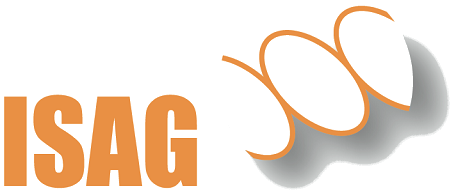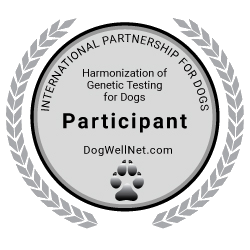Autosomal dominant inheritance
Two copies for each trait exist in the genome. An animal derives one of each of these copies from the father and one from the mother. A dominant allele overwrites it's recessive counterpart. Therefore, autosomal dominant inherited diseases affect animals which received one mutated allele. Either father or mother of the affected animal have to carry the mutated allele and are affected by the disease themselves.
Three possible genotypes exist:
1. Genotype n/n (homozygous healthy): This animal does not inherit the mutation and contract the disease with very low probability. The animal will never pass a mutated allele to it's offspring.
2. Genotype n/Mut (heterozygous affected): This animal posses one copy of the mutated allele with an increased probability to contract the disease. The offspring of the carrier inherit the mutated allele with 50% probability.
3. Genotype Mut/Mut (homozygous affected): Carrying two mutated copies of the allele, this animal will most probably exhibit the disease or die at very young age. Additionally, 100% of it's offspring inherit the mutated allele. As both parents have to be affected animals, this genotype is very rare.
Autosomal dominant traits often increase the risk to contract the inherited disease. Those changes in probability for the disease to occur are called variable penetrance of the mutation. Therefore, carriers of the mutation and affected animals do not exhibit the disease by 100%.
As in some diseases symptoms just develop in old age, the necessity arises to test the animal for the mutation before breeding.


